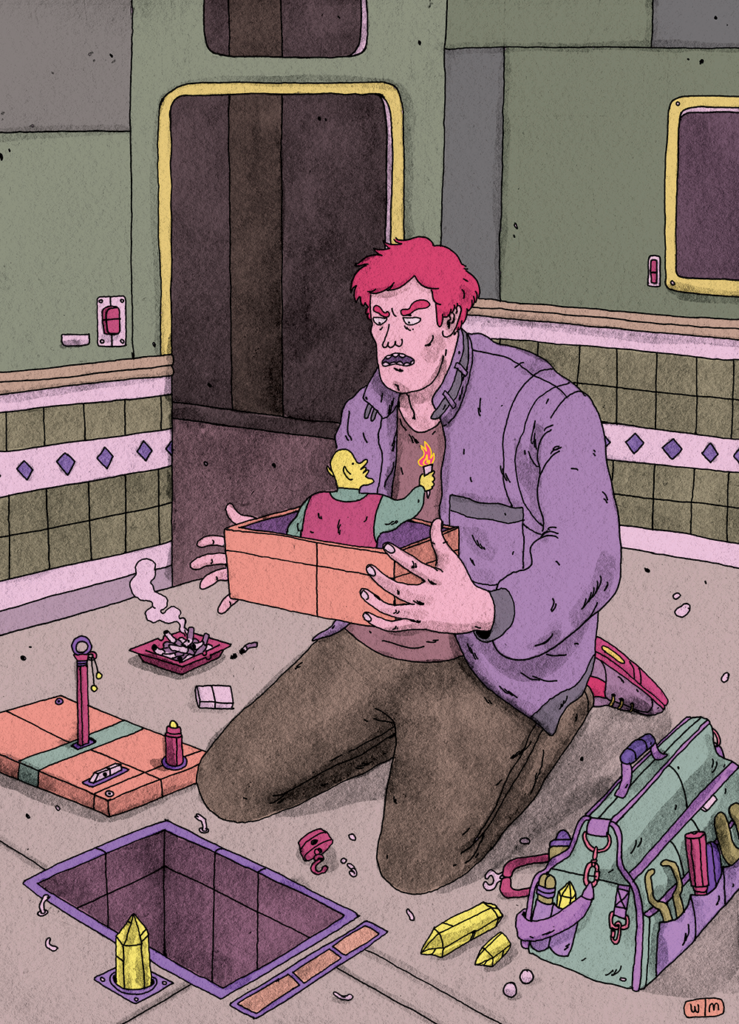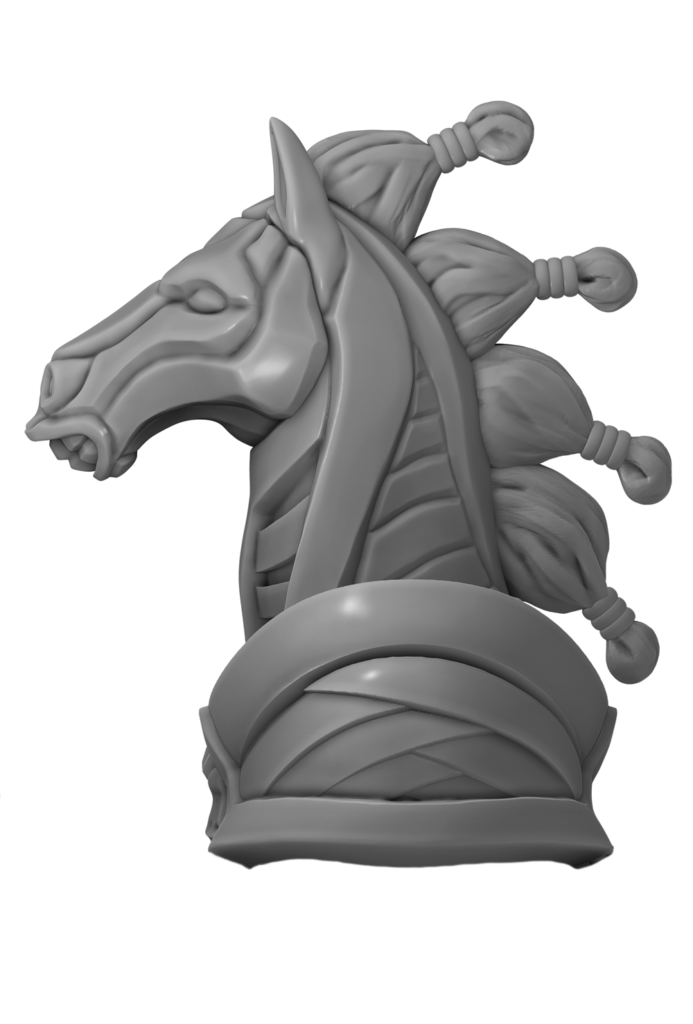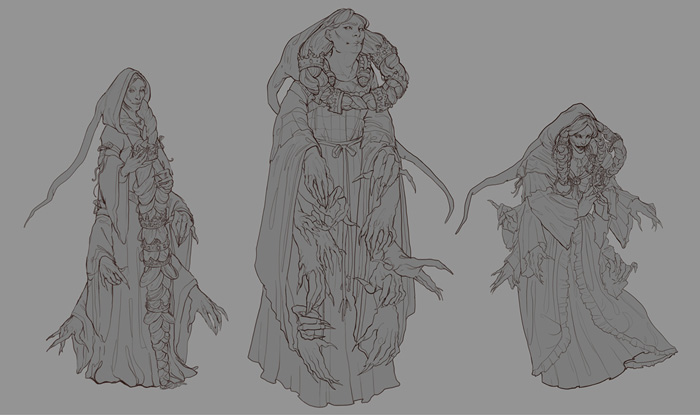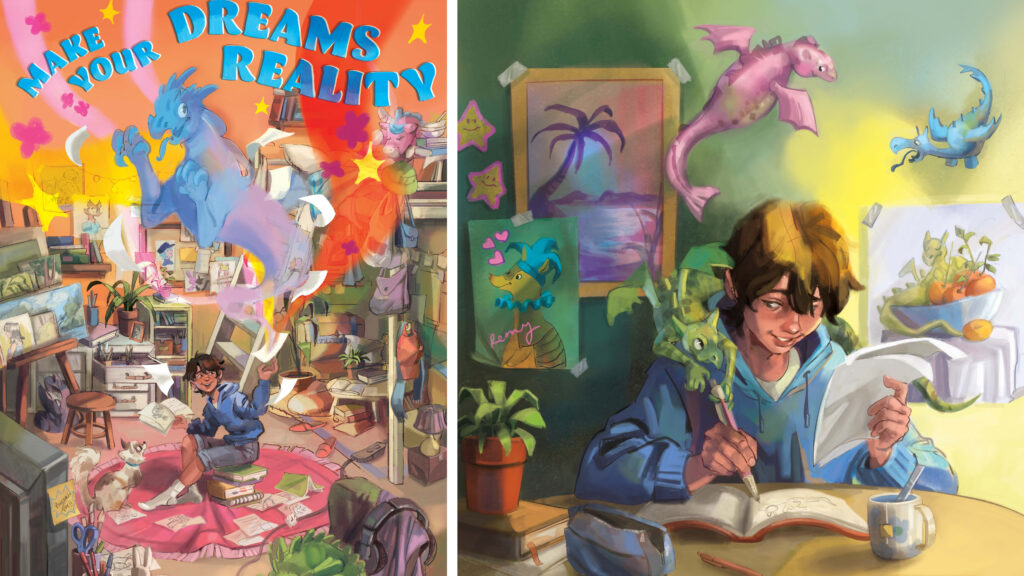Ringling College of Art and Design provides equal opportunity to its educational and administrative services, programs, and activities in accordance with federal and state law. This policy extends to the College’s electronic and information technologies and applies to their procurement, development, implementation, and ongoing maintenance. Ringling websites and web‐based applications must either conform to WCAG 2.0 Level AA or their content and functionality be made available to Users on request (such as by a student request to the Office of Accessible Education) in an equally effective and accessible alternative manner.
Policies and Procedures
Institutional Policies and Procedures
Institutional Policies Downloads
- Non-Discrimination Policy PDF
- Sexual Misconduct and Title IX Policy PDF
- Non-Harassment Policy PDF
- Child Protection Policy PDF
- Intellectual Property Ownership Policy PDF
- Drug and Alcohol Abuse Prevention Policy PDF
- Policies and Procedures for Events with Alcohol
- Combating Unauthorized Distribution of Copyrighted Material PDF
Equal Employment Opportunity Policy
The College provides equal employment opportunity to all persons without regard to sex, age, gender, color, race, national or ethnic origin, religion, marital status, sexual orientation, gender identity or expression, disability, veteran status, genetic information, or any other basis prohibited by law.
The policy applies to all areas of employment, including: recruitment, hiring, training and development, promotion, transfer, termination, layoff, compensation benefits, and all other conditions and privileges of employment in accordance with applicable Federal, State, and Local laws.
The College complies with all relevant and applicable provisions of the Americans with Disabilities Act of 1990 (ADA), as amended and Section 504 of the Rehabilitation Act of 1973, as amended. The College will not unlawfully discriminate against any qualified employee or job applicant with respect to any terms, privileges, access or conditions of employment because of a person’s physical or mental disability. The College also will make reasonable accommodations wherever necessary for employees or applicants with disabilities, provided that the individual is otherwise qualified to safely perform the essential functions of the job and provided that any accommodations made do not impose an undue hardship on the College.
Although managers and supervisors are primarily responsible for ensuring the implementation of the College’s Equal Employment Opportunity policies, all members of the faculty and staff share in the responsibility for assuring that by their personal actions the policies are effective and applied uniformly to everyone.
Anyone engaging in practices that violate the Equal Opportunity Policy, including discrimination, harassment or retaliation against someone who complains about discrimination shall be subject to disciplinary action, up to and including discharge.
Anyone who believes he or she has been subjected to unlawful discrimination, harassment, retaliation or other practices in violation of the Equal Employment Opportunity Policy should immediately contact the Director of Human Resources.
For students, the Student Conduct system will be the mechanism for handling reports of alleged violations of these policies. For employees, the Faculty Grievance Procedures and the Staff Grievance Procedures will be the mechanism for handling reports of alleged violations of these policies.
Smoking and Vaping Policy
Ringling College of Art and Design is committed to providing a safe and healthful environment for its students, faculty, staff, and visitors. Research findings show that tobacco use in general, including smoking, vaping, and breathing secondhand smoke, constitute a significant health hazard. In addition to causing direct health hazards, smoking contributes to institutional costs in other ways, including fire damage, cleaning and maintenance costs, and costs associated with employee absenteeism.
Ringling College of Art and Design therefore has set the following policy regarding tobacco use:
Smoking and vaping is prohibited on the Ringling College main campus except in outdoor designated smoking areas. Smoking and vaping is prohibited in all areas of the Museum Campus and at the Englewood Art Center. Smoking and vaping are also prohibited in all Ringling College vehicles including golf carts. For the purposes of this policy, smoking is defined as burning and vaping any type of product including, but not limited to, cigarettes, cigars, cigarillos and pipes, and additionally includes e-cigarettes and their associated products. Smoking and vaping materials will not be sold or dispensed within any property owned, leased, or controlled by Ringling College.
This policy applies to all persons including students, faculty, staff, visitors, contractors, subcontractors, and others on Ringling College property. Designated smoking areas on the main campus for smoking and vaping are identified by signage and contain receptacles for the proper disposal of cigarette butts. All students, faculty, staff, and visitors are expected to observe these designated smoking areas and to dispose of cigarette butts safely and only in the receptacles provided.
Organizers and attendees at public events, such as conferences, meetings, public lectures, social events and cultural events that use Ringling College facilities are required to abide by this policy. Organizers of such events are responsible for communicating this policy to attendees and for enforcing this policy.
Effective enforcement of this policy depends upon the courtesy, respect, and cooperation of all members of the Ringling College community.
Information about smoking and vaping cessation programs and resources is available from the Office of Student Life or the Office of Human Resources.
Student Grievance Policy
The primary objective of a student grievance process is to ensure concerns are promptly dealt with and resolutions reached in a fair manner. It is essential each student be given adequate opportunity to bring complaints and problems to the attention of Ringling College. The student grievance process may only be used to make a complaint about a College action or decision when there is no other process to address that particular issue (e.g. Code of Conduct, Grade Appeal, Sexual Misconduct, Discrimination, etc.).
Students are encouraged to resolve concerns by first talking directly with the College representative involved. If a student has not been able to resolve his or her complaint by speaking directly with the individual, he or she should discuss it with the College official responsible for that area of the College. The student should attempt to resolve the issue within 30 days of the occurrence. If the student is still not satisfied, he or she may file a written complaint, using the Student Grievance Form, with the Vice President for Student Life and Dean of Students as soon as possible, but no later than 6 months from the date of the incident. The Vice President of Student Life and Dean of Students will review the complaint and determine the appropriate Office or Department to respond to the complaint. If the complaint is about the Vice President for Student Life and Dean of Students, the student should direct the complaint to the President.
If the complaint involves allegations of harassment, sexual misconduct, or any form of unlawful discrimination, the complaint should be made using the procedures specific to those policies. The Vice President for Student Life and Dean of Students (Deputy Title IX Coordinator,) the Director of Human Resources (Deputy Title IX Coordinator) and the Executive Vice President (Title IX Coordinator) will assist the student in processing the complaint.
Information for Students Regarding Copyright and Technology Resources
It is the policy of Ringling College of Art and Design to comply with copyright and other intellectual property laws. As a network and Internet user, you must be aware of laws and policies concerning the use of copyrighted material, especially digital material – music, movies, software, etc.
Students agree to comply with Ringling’s policies and procedures with respect to copyright, intellectual property, and use of technology resources when then enroll at the College. These may be found in the Student Handbook, pages 108-122, and include:
- Responsible Use of Electronic Communications Policy
- Responsible Use of Information Technology Resources
- Intellectual Property Ownership Policy
- Ringling’s Position on Sharing Utilities such as Morpheus and Napster
- Residential Data Network Privilege Agreement
- Notebook Computer Agreement
- Plan for Combating the Unauthorized Distribution of Copyrighted Material by Users of The Ringling College of Art and Design Network
Copyright exists in any original work which exists or is fixed in any tangible medium of expression. Images displayable on computer screens, computer software, music, books, magazines, scientific and other journals, photographs and articles are some of the things subject to copyright. A copyright notice is not required for the work to be protected.
As provided in 17 U.S.C. §§ 107 and 108, it is a violation of copyright law to copy, distribute, display, exhibit or perform copyrighted works without the authority of the owner of the copyright, except for those circumstances which meet the exemptions and exceptions as specified by law. For information about copyright law and various exceptions, see the website of the U.S. Copyright Office at www.copyright.gov, especially the FAQs. In short, copyright infringement is the act of exercising, without permission or legal authority, one or more of the exclusive rights granted to the copyright owner. In the file sharing context, downloading or uploading substantial parts of a copyrighted work without authority constitutes an infringement.
Legal penalties for copyright infringement include civil and criminal penalties. In general, anyone found liable for civil copyright infringement may be ordered to pay either actual damages or “statutory” damages affixed at not less than $750 and not more than $30,000 per work infringed. For “willful” infringement, a court may award up to $150,000 per work infringed. A court can, in its discretion, also assess costs and attorneys’ fees. For details, see Title 17, United States Code, Sections 504, 505. Willful copyright infringement can also result in criminal penalties, including imprisonment of up to five years and fines of up to $250,000 per offense.
Institutional sanctions can include suspension of user’s access to Ringling College networks and referral to the appropriate College administrative office for disciplinary action.
Legal alternatives to illegal downloading include licensed resources provided by Ringling College’s Kimbrough Library and Office of Institutional Technology and the following suggested resources:
- Goldstein Library, through its subscription licensing program and library acquisitions, provides electronic books and periodicals, sound effects and music, images, and other resources for legal download at Goldstein Library.
- EDUCAUSE’s Legal Sources of Online Content: http://www.educause.edu/legalcontent
- MusicUnited: http://www.musicunited.org
- RespectCopyrights: http://www.respectcopyrights.org
Academic Policies and Procedures
Attendance Policy
I. Rationale for Attendance Policies
Studio art and design courses offer significant opportunities to complete coursework during class meetings with the help and guidance of the faculty. Each class meeting can build on the experience of the one before it. The fundamental nature of most art and design courses rely on student participation as an essential method for learning. If a student misses too many classes, he or she may miss a significant portion of any hand- on experience, as well as the skills and techniques taught that will be necessary in future courses. It is important to realize that even if excused, absences could impact the student’s academic performance because the student will not have the benefit of such things as full classroom interaction and the opportunity to ask questions while the material is being presented. Student contributions during class time constitute a significant component of the learning process.
Students should not miss one class in order to do homework or study for another class. Some students mistakenly think this is prioritizing; in reality, it is poor time management.
II. Overall Attendance Policy that Applies Irrespective of Major, Department, or Faculty of Record
Regular attendance in all classes is required. Students are expected to arrive on time and remain in class for the entire period scheduled. The responsibility for work missed due to any type of absence rests with the student. Tardiness, early departure or other time away from class in excess of 15 minutes per class session may be considered absence for that class session. Classes missed due to late registration are counted in the general absences permitted for the class.
In most cases, more than two absences in a course that meets once per week, or more than four absences in a course that meets twice per week will result in a grade of F. Regardless of meeting schedules, students who miss more than 13.3% of a course will fail the course, barring exceptional circumstances.
Documented exceptional circumstances include, but are not limited to: death in the family, serious medical conditions, hospitalization, observance of religious holidays, reasonable disability accommodations and other special/unforeseen circumstances beyond the student’s control. Numerous absences due to any reason including exceptional circumstances may warrant course withdrawal or failure.
Exceptional circumstances are determined on a case-by-case basis in an interactive process with the student, faculty of record, Department Head or Program Director of the course or other Ringling College professionals, as needed. Known circumstances, such as religious holidays should be discussed with the faculty of record in advance of the absence. Absences that are deemed exceptional will not affect the final grade.
III. Attendance Policy Determined by Faculty of Record
At the determination of the Faculty of Record, other absences can carry a grade penalty on the final grade percentage up to:
- For courses that meet twice a week:
- Two absences may drop a final course grade 5%.
- Three absences may drop a final course grade up to 10%. Four absences may drop a final course grade up to 20%. Five or more absences will result in a failing grade.
- For courses that meet once a week:
- One absence may drop a final course grade up to 5%. Two absences may drop a final course grade up to 10%. Three or more absences will result in a failing grade.
Ringling College will make every effort to reasonably accommodate students’ disability related academic needs. However, neither the college nor an individual faculty member is required to waive essential or fundamental academic requirements of a course regardless of the nature of a student’s disability.
Family Educational Rights and Privacy Act of 1974 (FERPA)
In accordance with the Family Educational rights and Privacy Act of 1974 (FERPA), students may inspect and challenge college educational records maintained in their name. Ringling College of Art and Design’s policy defines a student as any person who attends or has attended the College. Educational records are defined as any record in any media maintained by the College that is directly related to a student except for the following: personal records kept by a staff member not accessible to other persons, records created and maintained by the College’s operations or security for law enforcement purposes, employment records where employment is not contingent on the fact that the individual is a student, records maintained by a physician, psychiatrist, psychologist or other recognized professional used only for treatment of a student and alumni records containing information after the student is no longer in attendance that does not relate to the person as a student.
Students may inspect and review their educational records upon written request to the Registrar or appropriate records custodian. Arrangements for access will be made a promptly as possible, but no longer than 45 days from the date of receipt of the request. The College has the right to refuse a student access to their records under the following circumstances: the student has an unpaid financial obligation to any College office or department, the student owes overdue materials or equipment to the Library or other College office or department, there is an unresolved disciplinary action against the student, or the educational records requested is an exam or set of standardized test questions.
The College reserves the right to release a student’s educational records without their written consent to college officials who have a legitimate educational interest in the records, including the parents of an eligible student who is claimed as dependent for income tax purposes. At the discretion of the College, information regarding student abuse of alcohol or drugs not prescribed by a physician may be reported to the parents of students 21 years of age or younger. Information considered “directory” may be released to other members of the College community without the student’s prior written consent unless the student notifies the College in writing by the end of the first week of classes of the semester.
The College’s complete FERPA policy is available from the Office of Advising, Records and Registration Services.
Public Safety Policies and Procedures
Missing Student Notification Policy
This policy is established by Ringling College of Art and Design in compliance with the Higher Education Opportunity Act of 2008 and applies to all students at the college.
For the purposes of this policy a student may be considered to be a “missing person” if the person’s absence from campus is contrary to his/her usual pattern of behavior and unusual circumstances may have caused the absence. Such circumstances could include, but not be limited to, a report or suspicion that the person may be a victim of foul play, has expressed suicidal thoughts, is drug dependent, is in a life threatening situation, has been with persons who may endanger the student’s welfare, or is overdue to return to campus and is unheard from after giving a specific return time to friends or family.
Designation of Emergency Contact Information
- During the college’s registration process, all students are asked to designate an individual for emergency contact purposes. That designation will remain in effect until changed or revoked by the student.
- Students under the age of 18:
If a student under the age of 18 is determined to be missing, the college is required to notify a custodial parent or guardian no more than 24 hours after the student is determined to be missing. The Vice President of Student Life and Dean of Students, in consultation with the Director of Public Safety, will determine if a student is to be considered missing based on the reasonable provision of concerning information and evidence. - All Students:
If a student is determined to be missing, the college will notify the appropriate law enforcement agency not later than 24 hours after the determination has been made by the Vice President for Student Life and Dean of Students.
Missing Student Procedure
- Any individual on campus who has information that a student may be a missing person must notify the Office of Public Safety and/or the Office of Student Life immediately.
- The Office of Public Safety, with the assistance of the Office of Student Life, will gather all essential information about the students from the reporting person, from the student’s acquaintances and from official college information sources. Such information will include description, cellular phone number, clothes last worn, where the student might be, who the student might be with, vehicle description, information about the physical and emotional well being of the student, an up to date photograph, a class schedule, etc.
- Appropriate Student Life staff and other personnel across campus will be notified to aid in the search and location of the student. Contact with the student will be attempted using text messaging, cellular phone calls, Facebook, and e-mail.
- If search efforts are unsuccessful in locating the student in a reasonable amount of time as determined by the Vice President for Student Life and Dean of Students in consultation with the Director of Public Safety OR it is apparent immediately that the student is a missing person (e.g. witnessed abduction), OR it has been determined that the student has been missing for more than 24 hours, the Office of Public Safety will contact the appropriate law enforcement agency to report the student as a missing person. Law enforcement will take charge of the investigation with assistance from college officials.
- No later than 24 hours after determining that a student is missing, the Vice President for Student Life and Dean of Students or an Associate Dean of Students will notify the emergency contact previously identified by the student (for students 18 and over) or the custodial parent/guardian (for students under the age of 18) and advise that the student is believed to be missing.
Communications About Missing Students
- In accordance with established college emergency guidelines procedures, the Director of Media Relations and Special Assistant to the President will be part of the college administrative response team and is the designated spokesperson to handle media inquiries concerning a missing student.
- The local law enforcement agency in charge of the investigation and the city public information officer (PIO) will be consulted by the Director of Media Relations/Special Assistant to the President prior to any information release from the college so as not to jeopardize any investigation.
- Information provided to the media to elicit public assistance in the search for the missing person will be handled by the local law enforcement agency.
Technology Policies and Procedures
Responsible Use of Electronic Communications
Policy Statement
Ringling College of Art and Design provides an environment for the campus community to utilize appropriate computer and electronic information technologies in meeting the educational mission of the College. The College expects all members of its community to use electronic communications in a responsible manner. It is each individual’s responsibility to become familiar with their rights and responsibilities as outlined in this and other appropriate College documents. There are also federal, state, and local laws governing some aspects of information use and distribution. While guidelines may be provided in the context of the classroom, each individual is responsible to remain knowledgeable about current laws and policies.
Ringling College seeks to enforce its policies regarding non-harassment and the safety of individuals; to protect the College against damage or legal consequences; to prevent the electronic posting or distributing of copyrighted material in violation of license restrictions or other contractual agreements; to safeguard the integrity of computers, networks, and data, either at Ringling College of Art and Design or elsewhere; and to ensure use of electronic communications complies with this Student Handbook, the Faculty Handbook, and the Staff Handbook.
Ringling College of Art and Design may restrict the use of its computers and network systems for electronic communications in response to complaints presenting evidence of violations of Ringling College policies or codes, or local, state or federal laws. Specifically, the College reserves the right to limit access to its networks through Ringling College-owned or other computers, and to remove or limit access to material posted on Ringling College-owned computers. Ignorance of the law or of campus policies does not exonerate one from the consequences of inappropriate or illegal behavior.
Examples of Violations Covered in the Handbooks
What follows is a list of some of the potential behaviors associated with computer use, which are considered violations as noted in the Student Handbook, Faculty Handbook, and Staff Handbook. This list is not intended to be exhaustive; it is simply to provide examples of some of the behaviors that are considered unacceptable. Any behaviors, including those not explicitly listed here, in violation of the College policies or codes will be adjudicated accordingly.
Examples of Violations
- Violations targeted at a specific individual(s) or at classes of individuals:
- Sending harassing or threatening communication by electronic mail or other electronic communications.
- Sending harassing communication that is sexual in nature by electronic mail or other electronic communications.
- Sending harassing communication or posting hate speech that is motivated by racial, ethnic, religious, gender, or sexual orientations prejudice by electronic mail or other electronic communications.
- Posting or otherwise disseminating personal or sensitive information about an individual(s).
- Violations causing harm to the institution or its activities:
- Propagating electronic chain mail.
- Interfering with freedom of expression of others by “jamming” or “bombing” electronic mailboxes.
- Forging, fraudulently altering, or willfully falsifying electronic mail headers, electronic directory information, or other electronic information generated as, maintained as, or otherwise identified as College records in support of electronic communications.
- Using electronic communications to forge an academic document.
- Using electronic communications to hoard, damage, or otherwise interfere with academic resources accessible electronically.
- Using electronic communications to steal another individual’s works, or otherwise misrepresent one’s own work.
- Using electronic communications to collude on examinations, papers, or any other academic work.
- Using electronic communications to fabricate research data.
- Violations involving illegal, proprietary, or damaging material:
-
- Electronically distributing or posting copyrighted material in violation of license restrictions or other contractual agreements.
- Launching a computer worm, computer virus or other rogue program.
- Downloading or posting illegal, proprietary or damaging material to a College computer.
- Transporting illegal, proprietary or damaging material across College networks.
Responsible Use of Information Technology Resources
Guidelines
This statement defines the guidelines governing access to and use of information technology resources at Ringling College of Art and Design. These guidelines have been implemented to clarify and simplify procedures regarding use of information technology resources and to safeguard the computing and data network equipment. Users should also refer to the Responsible Use of Electronics Communications policy (above) for additional examples of misuse of campus computing and information resources. Feedback as to the effectiveness of these guidelines is encouraged.
All members of the Ringling College community are expected to utilize information technology resources in a responsible and appropriate manner, respecting the rights of other users.
Users are responsible for becoming familiar with their rights and responsibilities and applicable laws and guidelines. By utilizing these services, an individual agrees to abide by the guidelines and procedures that govern its use.
Failure to abide by these guidelines and other applicable codes or local, state, or federal laws may result in disciplinary actions including, but not limited to, loss or limitation of privileges in using information technology resources.
Examples of Violations
Misuse of computing and information resources and privileges includes, but is not limited to, the following:
- Disclosing network account credentials to anyone.
- Re-broadcasting unsolicited e-mail or USENET news (spam or electronic junk mail).
- Generating or forwarding chain letters, or participating in any kind of multilevel or pyramid scheme.
- Storing or transmitting copyrighted materials or licensed materials such as MP3 audio files without the owner’s permission.
- Introducing viruses or other disruptive/destructive programs.
- Using resources such as network bandwidth or disk storage excessively.
- Attempting to evade or bypass resource quotas such as disk usage quota (logon to www.ringling.edu/manage.html to check your resource quotas).
- Logging into workstations in more than one campus laboratory at the same time.
- Attempting to decrypt coded information such as passwords.
- Using any Internet Protocol (IP) address inside or outside the Ringling College domain(s) without prior approval.
- Attempting to install or utilize a server, network analysis tool, or network management tool on the Ringling College network without authorization.
- Intercepting network traffic intended for nodes other than one’s own.
Security and Confidentiality of Information Storage and Transmission
Ringling College of Art and Design cannot guarantee the confidentiality or privacy of electronic mail messages and other documents stored on College computers. Ringling College assumes users are aware that electronic files and transmissions are not necessarily secure.
Furthermore, electronic mail in its present form is not secured and has the potential to be vulnerable to unauthorized access, modification, and forgery. Such services should be utilized with this in mind.
World Wide Web users should be aware that it is possible for software on a website to explore and retrieve information from the user’s computer without the user being aware of the invasion. Anyone who “downloads” software, certain applications, or certain file types, or receives email attachments should be aware of the possibility that such material could incorporate viruses, worms, or other destructive materials.
Guidelines Relating to Confidentiality
- Ringling College reserves the right to conduct routine maintenance, track problems, and maintain the integrity of its systems. As is the case with all data kept on Ringling College’s computer systems, the content of electronic mail or user files may be revealed by such activities.
- Ringling College does not routinely monitor the contents of email. However, such monitoring may be conducted when required to protect the integrity of the systems or to comply with legal obligations.
- Ringling College reserves the right to inspect the contents of email and all disk files in the course of an investigation into alleged impropriety or as necessary, to locate substantive information not readily available by other means, or to ensure compliance with institutional policy.
- Authorization to investigate the contents of user files or emails must be given by the Senior Officers.
Responsibilities of System Administrators
System administrators shall perform their duties fairly, in cooperation with the user community, the appropriate higher-level administrators, and College policies. System administrators shall respect the privacy of users as far as possible and shall refer all disciplinary matters to appropriate authorities.
Residential Data Network Connection Privilege Agreement
Residential Data Network Privilege Agreement
All students are responsible for reading, understanding, and abiding by the guidelines presented in the Student Handbook and republished on this web page.
Residential Data Network Connection Privilege Agreement
An Ethernet connection is provided in your campus residence hall room as a privilege. It is the responsibility of the connected residents to be good citizens. Like any other community, the online community of which you will be a member cannot function without some sense of law and order. Therefore, it is your responsibility to adhere to these and all other Ringling College of Art and Design procedures and policies. The data network is for exclusive use of Ringling College students, faculty, and staff, and is to be used only for the educational, academic, and research missions of the College. Ringling College reserves the right to change network access privileges, availability of access, and the terms of this agreement at any time, for any reason. This agreement is only valid while the undersigned is a registered student at Ringling College of Art and Design.
By accepting and using the Ethernet connection provided in your room, you agree to abide by the terms and conditions set forth above and on the back of this form. Failure to observe these policies can result in a conduct violation, having your campus housing data network connection deactivated, or in severe cases, criminal proceedings. Ignorance of these policies is not an excuse for non-compliance.
- I will fully comply with the Ringling College of Art and Design Computer Use Policy.
- I will not use any software or hardware designed to breach the security of the campus network or any devices attached to the network.
- I will not engage in any activities designed to interrupt or intercept the network traffic of other users.
- I will not use Ringling College resources to support personal business interests.
- I will not sell or provide access to Ringling College network to outside parties.
- I will not use my connection to engage in software piracy or copyright infringement.
- I will not activate any type of shared file service or access to my personal computer by anyoneother than me.
- I understand I am personally responsible for any activities originating from my network connection.
- I understand that Ringling College of Art and Design assumes no liability for data loss or equipment damage caused by my Ethernet connection.
- I understand that the use of Ringling College information resources on campus are guided by the sameprinciples, and are subject to the same sanctions, as other campus activities.
- All use of network-based games employing broadcast transmission packets (such as multi-user Doom, Quake, Half-Life, etc.) is prohibited. These games generate massive network traffic that disrupts the activities of other users across the campus network. I will respect the priority of academic use of the network.
- I understand I have the right to my fair share of the campus network bandwidth. If I have reason to believe another user or group of users is interfering with my access to the network, I will report the problem to the Director of Institutional Technology. Bandwidth offenders are contacted individually by the Institutional Technology Center. If the heavy usage is not academic related, then the student is advised on how to limit usage. Repeated offenses may result in turning over a student’s case to the Dean of Students who deals with conduct violations.
- The student housing network is not intended to enable Ringling students to be Internet content providers. File Sharing Utilities (such has Napster, Scour, iMesh, etc) must have file sharing turned off, or pointed to an empty directory.
- Ringling College of Art and Design reserves the right, and by signing this agreement, I authorize Ringling College, to monitor network traffic through my data connection for the purpose of checking compliance with this agreement.
Retransmission or propagation of the student housing network connection through the use of devices such as switches, hubs, routers, and wireless access points is allowed for personal use within the student’s room or apartment. Institutional Technology technical support staff members do not provide technical support for these devices. Any troubleshooting of your network connection will require that your computer be plugged directly into the data jack in your room or apartment. All devices connected to the student housing network must be securely and properly configured, and the student who registers the device(s) will be solely responsible for any violation or abuse of the students housing network use policy resulting from the use of the device(s). Any device that causes any network-related problems or denies network service to other users may be disconnected from the student housing network without prior warning.
Web Privacy Policy
Thank you for visiting our website. As a leader in the use of technology in art and design, we are keenly aware of Internet privacy issues. Therefore, this is our pledge to you:
- We collect only the most general information from you while you visit our site. By the time you leave, we’ll know the country from which your visit originated, the browser you use, what site you came to us from, and your I.P. address. This information is compiled into a summary of all site users, and is not linked to personal information. We use this information only in the interest of better understanding of our visitors so we can make this site better for you, our guest.
- Any personal information we do collect from you will be used solely for the purpose intended. So, for example, if you provide us with information through an online admission application, that department will only use it for that purpose.
- We do not share, sell or otherwise disclose personal information with any third parties, either inside or outside the university. You never have to share personal information with us to visit our website.
- We may disclose or be required to disclose personal information in response to legal process, for example, in response to a court order or a subpoena. We also may disclose such information in response to a law enforcement agency’s request.
Our website may contain links to other sites whose information practices may be different than ours. Visitors should consult the other sites’ privacy notices as we have no control over information that is submitted to, or collected by, these third parties.
If you have questions about our privacy policy or more general questions about the Ringling College website, feel free to email us at info@ringling.edu or call us at 941-351-5100.
Approved by the IT Oversight Council on March 3, 2013.
Notebook Program
Notebook Program Agreement
Introduction
This is a legal document between you and the owner of this notebook computer, Ringling College of Art and Design. Please carefully read the terms and conditions of this User Agreement, governing your use of the notebook computer which you are going to take delivery of today. You may not take possession of this notebook until you have read and accepted the terms of this User Agreement and signed the Release Form.
Grant of License
Ringling College of Art and Design grants you the personal, non-exclusive right to utilize this notebook computer for the duration of your study at Ringling College of Art and Design. This notebook computer should be used primarily for your educational and scholarship activities. Any use of this computer which interferes with its primary purpose (for example, using it to run a personal business) is not permitted.
Upon the entrustment of the notebook computer into your care, you assume the responsibility and liability of the notebook computer. In addition, you agree to return this notebook computer on the scheduled or arranged date of return.
Liability
While under the possession of the User, the User is fully responsible for any theft or physical damage of this notebook computer and may be held accountable for the replacement or repair of this notebook computer. The User needs to make sure that all cables and components are returned with this notebook computer. The User is also responsible for keeping this notebook computer clean and in good condition during its use and upon its return to Ringling College of Art and Design. The User cannot lend this notebook computer to anyone without notification and permission from Ringling College of Art and Design. Please note that if the User lends this notebook computer to another person without prior permission, the User is still held accountable and responsible for the replacement of this notebook computer any may be subject to the forfeiture of the notebook computer, at the sole discretion of Ringling College. Failure to report the loss of this notebook computer or failure to return this notebook computer will result in appropriate disciplinary action by Ringling College of Art and Design and a possible police investigation.
Support and Service
The User must obtain prior written permission from the Help Desk at Institutional Technology to install any internal or external components on this notebook computer. The User can only install software if he/she has a valid and current license. The User may not uninstall or erase any programs or files that were originally on this notebook computer. In addition, the User is strongly advised to consult the Help Desk at Institutional Technology before changing any system settings. The User should contact the Help Desk at Institutional Technology as soon as possible if there is any technical and/or physical problem with this notebook computer.
Term
This Agreement will terminate upon your graduation, withdrawal or dismissal from Ringling College of Art and Design or upon any other notification from Ringling College to turn in the notebook computer. Such notification of termination shall be at the sole discretion of Ringling College. Upon such termination, you must promptly return this notebook computer and all of its parts and peripherals to the Help Desk at Institutional Technology.
Ownership
All rights, title, and interest to the notebook computers are the property of Ringling College of Art and Design. Your use of the notebook computer is subject to the laws of the State of Florida and the United States of America and the policies and practices of Ringling College and nothing in this Agreement or in the conduct of Ringling College constitutes a waiver of the rights of Ringling College of Art and Design under such laws.
Managed Devices and Remote Lockout/ Erasure
The Apple MacBook Pro notebook computers and iPad tablets owned by Ringling College of Art and Design are considered managed devices. While Ringling College of Art and Design respects your privacy and does not actively monitor your activity, it is important to note that these devices are subject to certain circumstances that may require remote lockout or erasure.
In cases of reported loss or theft, or if the notebook computer is not returned within the allocated time frame, Ringling College of Art and Design reserves the right to initiate remote lockout or erasure procedures. These measures are implemented to safeguard the confidentiality of data and prevent unauthorized access to sensitive information.
It is crucial to understand that the notebook computers provided to you are on loan and are not available for purchase. Payment of any fines or penalties imposed on your account for failing to return the equipment will not unlock or in any way transfer ownership of the devices to you. The notebook computers, along with their associated parts and peripherals, remain the sole property of Ringling College of Art and Design.
Please be aware of your responsibilities in promptly returning the equipment according to the agreed-upon terms and conditions. Failure to comply may result in disciplinary sanction(s) per the Student Code of Conduct within the Student Handbook.
Detailed Terms of the Agreement
- The notebook computer, which is provided for my use with no transfer of ownership, is a fully configured notebook computer with a battery, cords, and other appropriate accessories. I will retain possession of the computer until I am no longer enrolled at Ringling College of Art and Design.
- I will not remove or alter any of the identification tags attached to or displayed on this notebook computer. I understand that notebook service and support is contingent on the proper display of the identification tags.
- I will not assign, transfer, pledge or otherwise dispose of this Agreement or any interest herein, or lend the computer or otherwise permit it to be possessed or used by anyone other than me.
- I agree to adhere to Ringling College of Art and Design’s procedures and policies in effect now or in the future governing the use of the computer. I agree to comply with all applicable State and Federal law including copyright and intellectual property law pertaining to software.
- The notebook computer is and will, at all times, remain the property of Ringling College of Art and Design. I will have no title or other ownership interest in this notebook computer.
- I agree to use this notebook computer in a careful and lawful manner, and will not make any physical alterations, additions or hardware changes/improvements to the computer without prior written consent of Ringling College of Art and Design. Such alterations include but are not limited to adding memory, or input/output devices. Should additions and/or enhancements be made to the computer, such enhancements will belong to Ringling College of Art and Design. Ringling College of Art and Design reserves the right to remove any additions to and/or alterations of hardware or software components.
- I am fully responsible for maintenance of software applications and hardware not provided by Ringling College of Art and Design.
- Upon request, I agree to promptly deliver this notebook computer to the Help Desk at Institutional Technology for inspection or to verify inventory/asset management information. Failure to comply by the date requested may result in a hold being placed upon my computing privileges and transcript or other appropriate actions or sanctions.
- I agree to take necessary and prudent care to keep the computer secure and safe.
- I will be responsible for the risk of loss by theft, destruction, or damage of the computer from the date I take delivery of the computer until it is returned to Ringling College of Art and Design. Ringling College reserves the right to service any notebook. If during the period of this agreement, the computer is found to be damaged during inspection by Institutional Technology Help Desk, Ringling College of Art and Design may charge me the actual cost of repairs or replacement. Any subsequent incidents of damage will result in a charge for the actual cost of repairs or replacement. These out-of-pocket costs will be added to my account.
- If any components are missing when I return the notebook computer to Ringling College, I will be charged full replacement cost of each missing component.
- I must report theft (or suspected theft) or other loss of the computer within 24 hours to the Help Desk at Institutional Technology. In case of theft or loss occurring on campus, Public Safety must also be contacted at (941) 359-4121. The Office of Public Safety will require me to contact the Police Department of Sarasota to obtain a written police report. If the incident occurs off-campus, the police department in the jurisdiction in which the theft or loss occurred should be notified and a copy of the written police report obtained. To receive a replacement computer, I will submit a written copy of the police report to the Help Desk at Institutional Technology. In cases of theft or loss, I will be responsible for full replacement cost. If I fail to record theft or loss or suspected theft or loss within 24 hours to the Help Desk at Institutional Technology and fail to contact Public Safety or police, Ringling College of Art and Design will bill me for the replacement cost of the notebook and accessories.
- Upon my graduation, withdrawal or dismissal from Ringling College or upon any other notification to promptly turn in the notebook computer, I agree to promptly deliver the computer to the Help Desk at Institutional Technology or such other place designated by Ringling College of Art and Design. In the event that I do not return the notebook computer within stated time frames, Ringling College may, at its discretion, place a hold on my college record, and bill me for the replacement cost of the notebook computer.
- I recognize this pilot project may be terminated at the discretion of Ringling College of Art and Design.
- I agree that the Ringling College of Art and Design may amend the terms of this agreement (to include cancellation) upon serving me a written Notice of Amendment. Such Notice of Amendment will be effective 10 days from the date of the mailing or delivery.
- Ringling College of Art and Design is not responsible for any injuries, damages, penalties, or losses, including legal costs and expenses incurred by me or any other person caused by the transportation, installation, use of or any other matters relating to this notebook computer.
- This agreement and any amendments or supplements to it will be governed by the laws of the State of Florida and the United States of America.
- No delay or failure to enforce any provision of this Agreement will constitute a waiver or limitation of Ringling College of Art and Design’s rights of enforcement under it.
- By agreeing below I acknowledge that I have read and understood this information and agreement. Failing to follow the policy and procedures in this agreement or break any of the agreement will result in the termination of this agreement.
Institutional Technology
Phone: (941)359-7633 (includes after hours)
Fax: (941)359-7615
Online Support Requests (for current students, faculty, and staff): https://it.ringling.edu/
All Other Inquiries: info@ringling.edu.


















